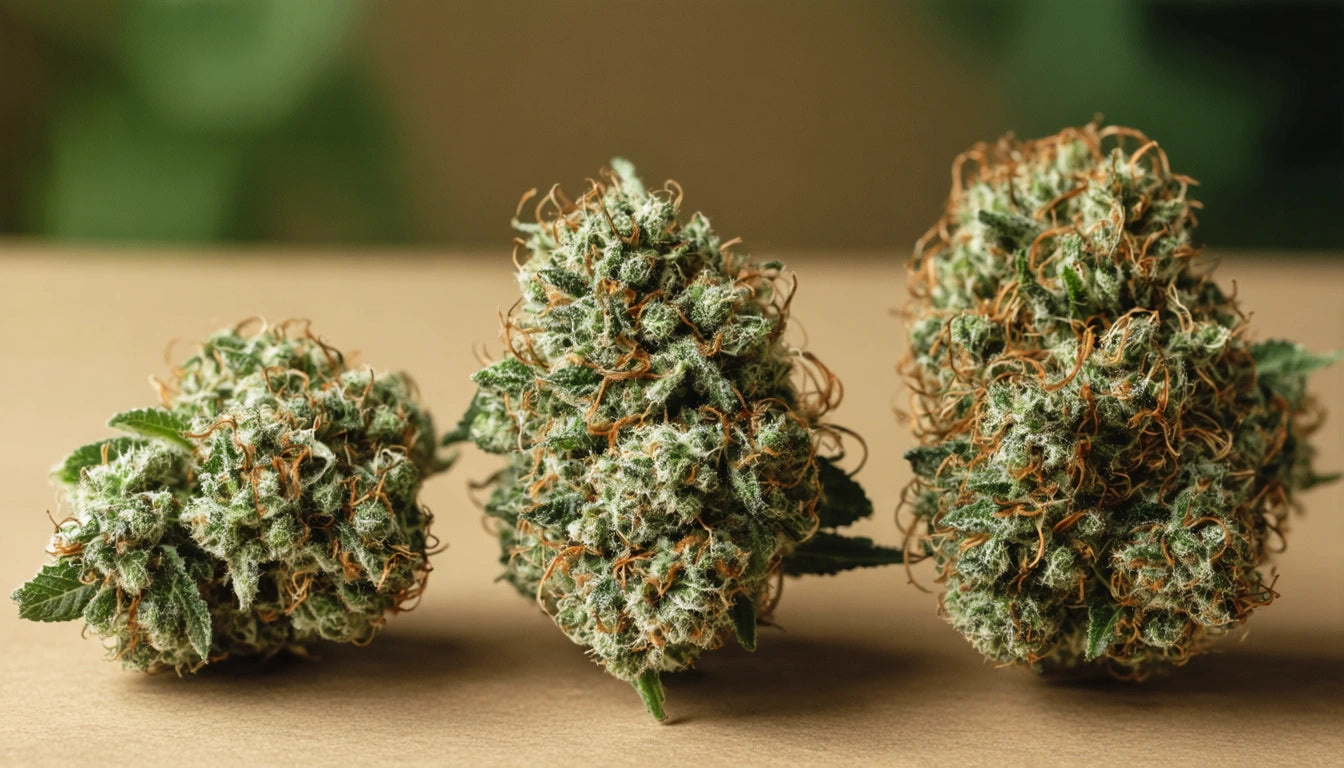Table of Contents
- Understanding Crohn's Disease: Symptoms and Conventional Treatments
- Cannabis and Inflammation: The Endocannabinoid Connection
- Research Evidence on Cannabis for Crohn's Disease
- Consumption Methods for Crohn's Patients
- Best Cannabis Options for Crohn's Disease Symptom Relief
- Safety Considerations and Potential Side Effects
- Patient Experiences and Testimonials
- Future Research Directions and Treatment Potential
Exploring the Potential Benefits of Cannabis for Managing Crohn's Disease
Crohn's disease affects millions worldwide, causing debilitating inflammation throughout the digestive tract. As conventional treatments sometimes fall short in providing relief, many patients wonder: can cannabis help Crohn's disease? The growing interest in alternative treatments has led researchers and patients alike to explore the potential benefits of cannabis for this chronic inflammatory bowel condition.
Understanding Crohn's Disease: Symptoms and Conventional Treatments
Crohn's disease is characterized by persistent inflammation in the digestive tract, commonly affecting the small intestine and colon. Patients typically experience severe abdominal pain, diarrhea, fatigue, weight loss, and malnutrition. The chronic nature of the condition means symptoms can flare up unpredictably, significantly impacting quality of life.
Conventional treatments include anti-inflammatory medications, immune system suppressors, antibiotics, and in severe cases, surgery to remove damaged portions of the digestive tract. However, these approaches often come with significant side effects and may not provide complete relief for all patients.
Cannabis and Inflammation: The Endocannabinoid Connection
The potential for cannabis to help with Crohn's disease stems largely from its anti-inflammatory properties. The human body's endocannabinoid system plays a crucial role in regulating inflammation, and cannabis compounds interact directly with this system.
As explored in this detailed analysis of cannabis and inflammation, cannabinoids like THC and CBD have demonstrated anti-inflammatory effects in various studies. CBD, in particular, has shown promise in reducing intestinal inflammation without the psychoactive effects associated with THC.
Research Evidence on Cannabis for Crohn's Disease
Scientific research examining whether cannabis helps Crohn's disease has yielded promising results, though studies remain limited in scope:
- A 2013 study published in Clinical Gastroenterology and Hepatology found that 10 out of 11 patients with Crohn's disease experienced significant symptom improvement with cannabis use
- A 2018 study in the European Journal of Gastroenterology & Hepatology reported that cannabis use was associated with reduced need for other medications and surgery among Crohn's patients
- Research published in Digestive Diseases and Sciences suggested that cannabis may help reduce inflammation markers in the gut
While these findings are encouraging, researchers emphasize the need for larger, controlled clinical trials to establish definitive evidence.
Consumption Methods for Crohn's Patients
For those wondering about the best ways to use cannabis for Crohn's disease, several consumption methods may offer benefits:
Edibles for Sustained Relief
Many patients find that edibles provide longer-lasting relief for Crohn's symptoms. The best edibles for Crohn's disease typically include low-dose, consistent products that allow for careful dosing. Products containing both THC and CBD may offer enhanced anti-inflammatory benefits through the entourage effect.
When selecting cannabis edibles, patients should prioritize products with proper safety features like child-resistant packaging to prevent accidental consumption, especially in households with children.
Tinctures and Oils
Sublingual tinctures and oils offer faster onset than edibles while still providing relatively long-lasting effects. They allow for precise dosing and can be particularly helpful during flare-ups.
Vaporization
Vaporizing cannabis flower or concentrates provides rapid relief during acute symptoms. This method avoids the respiratory irritation associated with smoking while still delivering quick effects.
Best Cannabis Options for Crohn's Disease Symptom Relief
Does pot help Crohn's disease? Research suggests certain cannabis varieties and cannabinoid profiles may be more beneficial than others:
- Balanced THC/CBD strains: These may provide anti-inflammatory benefits while minimizing psychoactive effects
- High-CBD varieties: For patients seeking relief without intoxication, high-CBD strains may reduce inflammation with minimal psychoactivity
- Strains high in beta-caryophyllene: This terpene has demonstrated anti-inflammatory properties and directly activates CB2 receptors
The potential benefits of cannabis for digestive issues extend beyond Crohn's disease. Similar mechanisms may explain why cannabis might alleviate IBS symptoms and why some patients report relief from other inflammatory gastrointestinal conditions.
Safety Considerations and Potential Side Effects
While exploring if cannabis helps Crohn's disease, patients should consider potential risks:
- Psychoactive effects may interfere with daily activities
- Smoking cannabis can irritate the respiratory system
- Potential drug interactions with conventional Crohn's medications
- Varying legal status depending on location
Additionally, some studies suggest that heavy, long-term cannabis use might potentially mask underlying symptoms without addressing the root inflammation. This highlights the importance of using cannabis as a complementary approach rather than replacing conventional medical care.
Patient Experiences and Testimonials
Many Crohn's patients report significant quality-of-life improvements with cannabis use. Common benefits cited include:
- Reduced frequency and severity of diarrhea
- Decreased abdominal pain and cramping
- Improved appetite and weight maintenance
- Better sleep quality
- Reduced anxiety related to the condition
These anecdotal reports align with research findings on how cannabis may affect diarrhea and other digestive symptoms. The anti-inflammatory properties of cannabis may also explain why it shows promise for arthritis and rheumatoid pain, conditions that share inflammatory pathways with Crohn's disease.
Future Research Directions and Treatment Potential
The relationship between cannabis and Crohn's disease represents an exciting frontier in both gastroenterology and cannabis medicine. Future research will likely focus on:
- Identifying optimal cannabinoid ratios for treating specific Crohn's symptoms
- Developing targeted cannabis-based medications for inflammatory bowel diseases
- Understanding long-term effects of cannabis use for chronic condition management
- Exploring how cannabis might complement conventional Crohn's treatments
As medical cannabis becomes more widely accepted and researched, patients with Crohn's disease may gain access to more tailored, evidence-based cannabis therapies. The growing body of research on how cannabis affects inflammation and immune function will continue to inform these developments.
For those considering cannabis for Crohn's disease management, consulting with healthcare providers familiar with both cannabis medicine and inflammatory bowel disease is essential to developing a safe, effective treatment approach that addresses individual needs and circumstances.











Leave a comment
All comments are moderated before being published.
This site is protected by hCaptcha and the hCaptcha Privacy Policy and Terms of Service apply.